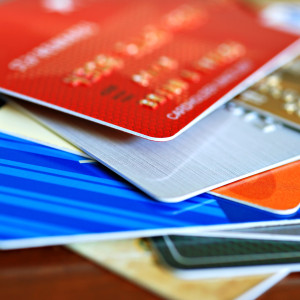To listen to some in Washington, it would be easy to reach the conclusion that the consumer credit industry is out to scam hapless Americans with loan-shark schemes dreamed up by the likes of Tony Soprano.
Just last week, Sen. Elizabeth Warren, who was the leading voice in the creation of the Consumer Financial Protection Bureau (CFPB), told an audience in New York: “The biggest financial institutions figured out they could make a lot of money by cheating people on mortgages, credit cards and payday loans.”
But are Americans really being swindled?
There are always people who have mismanaged credit, says Todd Zywicki, a professor of law at George Mason University School of Law and co-author of the new book Consumer Credit and the American Economy.
But as Zywicki explained in an interview with InsideSources, “By and large, people manage credit well. They make rational decisions and use credit to make their lives better. In fact, they use credit in a way that’s very consistent with how economists would think about the issue. People use credit for the same reasons businesses use credit, which is to make capital investments, like buying a washing machine or an education or a car, and to smooth income and expenses.”
Should consumers be trusted to make wise decisions? Would Americans benefit from the heavy hand of Washington deciding when credit is abusive?
The regulations now being implemented on the consumer credit industry “flow back to this faulty assumption that consumers are children and can’t be trusted with credit,” says Zywicki. “And so what we’ve done systematically is shut off options for credit to consumers. But that doesn’t eliminate the demand and the need that consumers have.”
The unintended consequences are piling up.
The Credit Card Act of 2009 has made it much more difficult for high-risk consumers to obtain a credit card. Credit card ownership by low-income Americans has fallen by 11% in the period since the law was enacted, forcing people to turn to payday lenders.
The Durbin Amendment to Dodd-Frank placed price controls on debit card swipe fees. But banks need to make up for the lost revenue, leading to new fees. This has resulted in a rapid rise of unbanked Americans, now forced to rely on check cashers.
Of course, Washington is trying to shut down payday loans and check cashers, too. Attorney General Eric Holder is implementing the secretive “Operation Choke Point,” which strong-arms banks into closing accounts of check-cashing services and payday lenders. It doesn’t matter that the Justice Department has no evidence of a crime, they’ve found a way to shut down companies without due process. Should any banks not comply with the DOJ’s demands to close an account, then the Department will go after the banks instead.
Things won’t be getting any better. Congress gave the CFPB power to crack down on any practice deemed “abusive,” and it is free to define that term as it wishes. It need not even wait for actual abuses to take place, the CFPB has the authority to regulate anything that it believes could cause future harm.
Zywicki states bluntly: “We’ve had an onslaught of regulatory stupidity and economic illiteracy that’s virtually unprecedented in American history.”
As for payday loans, which receive much ridicule from Washington politicians, Zywicki explains that they are primarily used by those without other credit options available. Washington regulation has pushed more people to such last-resort credit. And the data shows that when payday loans are banned, there are more bounced checks and higher use of overdraft protection, which are at least, if not more, expensive than payday loans.
The more Washington tinkers with credit markets, the more problems it creates. The housing bubble originated with market distortions in Washington. And consider Washington’s attempts to increase access to student loans. This has further driven up the costs of a college education and—some worry—created another bubble.
The best course of action is for Washington to make sure the financial industry is fully transparent and upfront with consumers on the costs and risks of certain products. Fraud and other attempts to deceive consumers must be prosecuted. But consumers, who have already proven they understand credit better than Washington, should be free to make their own fully-informed choices.

